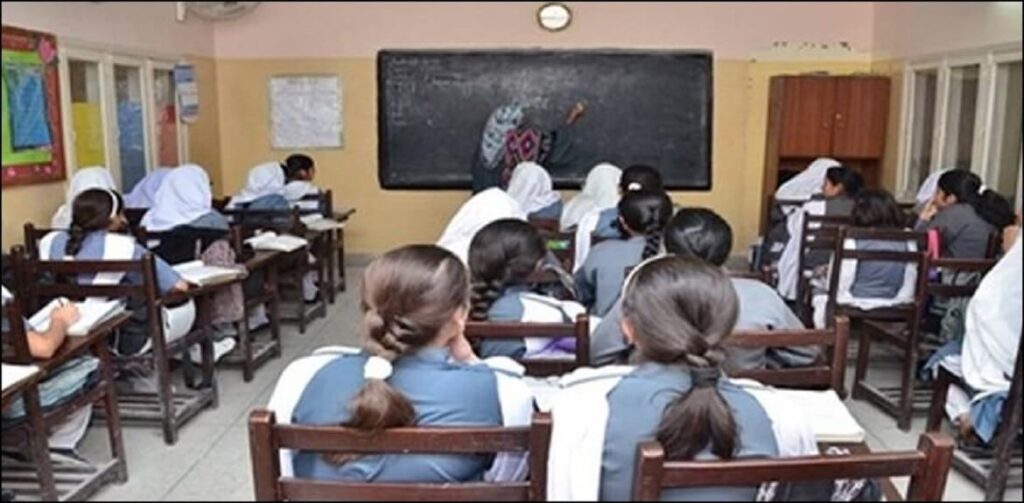By Asadullah Raisani
I recently had interactions for this piece with students from different government schools, both girls and boys. I had only two questions to ask them: “Do inspections take place in your schools?” and “If yes, what is the typical response of your teachers during such inspections?” Almost all of them, whether they were in class 3 or class 10, had similar responses. They said that inspections were rare in their schools. However, when inspections do occur, their teachers are usually informed in advance. This advance notice leads to minor renovations of the schools, the beating sticks used for corporal punishment are hidden in almirahs, and the best and brightest students are asked to fill the first two rows. The day of the inspection feels like a party in the schools, as teachers contribute money to offer samosas, tea, and cold drinks to the inspecting officers.

I can recall almost the same scenario from when I was in school about 15 years ago. The routine still remains the same. This piece provides a critical analysis of this grave reality, discusses it impacts, and outlines a future course of action in this regard.
The conclusions/findings from the fieldwork I conducted are clear: the standard of education in the majority of government schools on account of lack of routine inspections leading to lack of accountability, in Quetta City, is quite low, and despite the discouragement and legal prohibition of corporal punishment it remains prevalent in these schools. Recent studies have highlighted the profound and long-lasting effects of low-standard education and corporal punishment on children’s educational outcomes and their subsequent adult lives, which are discussed as follows.
Firstly, low standard of education leads to poor performance in academic activities. Schools with poor resources and updated curricula with untrained teachers do not equip students with skills and knowledge. This results in poor performance in tests, increased dropout rates, and limited chances for advancement and college education. Secondly, quality education is important in the development of the human mind. Studies reveal that children in low-standard education settings have a slower learning pace, and this slows their learning, analytical reasoning, and intelligence. Thirdly, the economic repercussions of low-standard education are far-reaching. The absence of quality education increases the chances of obtaining low-earning employment, therefore resulting in low lifetime earnings and poverty.
As far as the effects of corporal punishment are concerned, they are also profound and far-reaching. Study shows that corporal punishment is associated with increased aggression and antisocial behavior in children. A study by the American Academy of Pediatrics found that children who experience corporal punishment are more likely to exhibit violent behavior and have trouble forming healthy relationships. Secondly, the psychological impact of corporal punishment is also profound. It is linked to higher rates of anxiety, depression, and other mental health issues. Children subjected to physical punishment often develop low self-esteem and a negative self-image. Thirdly, corporal punishment negatively affects academic performance. It creates a hostile learning environment, leading to disengagement and lower academic achievement. Research indicates that schools where corporal punishment is prevalent tend to have poorer academic outcomes compared to those that prohibit it. Moreover, the effects of corporal punishment extend into adulthood. Adults who were physically punished as children are more likely to engage in criminal behavior, experience mental health issues, and perpetuate the cycle of violence with their own children.
In sum, low standard of education and corporal punishment cause severe problems in children’s lives. The lack of proper inspection in government schools has led to a lack of accountability among teachers, ultimately compromising the standard of education and allowing corporal punishment to go unnoticed despite its legal prohibition in the country. I recall a statement by a school teacher some time ago: “Corporal punishment was ended under the pressure of NGOs, and we teachers were never in favor of ending this.” He justified corporal punishment with great confidence throughout the discussion. However, as discussed above, research supports the decision to prohibit corporal punishment as it has negative impacts on children’s lives.
As a way forward, sudden inspections of government schools by competent authorities should become routine, ensuring that no school goes unnoticed within a calendar year. The inspection teams often consist of retired school teachers. This custom needs to be changed, public representatives should also take keen interest in these inspections and people from different but relevant departments should also be part of inspecting teams. Teachers found with sticks or reported by students for administering corporal punishment should be penalized according to the law. Recent laws state that any teacher convicted of assaulting a child can face imprisonment for up to one year, a fine of up to fifty thousand Rupees, or both. This law should be implemented in letter and spirit.
Last but certainly not least, proper training for teachers is necessary to achieve better outcomes regularly. Additionally, every teacher should undergo a yearly psychological test to determine whether they are fit to teach children. Young children are vulnerable to many influences, and negative attitudes and behaviors can cause significant damage. Many children during the fieldwork complained that their teachers become furious when they ask questions. Unfortunately, dedicated and devoted teachers are exceptions and are few in number. Therefore, great changes are required in the sector on a war footing because these children are the future of the country, and no wise nation takes its future for granted.
Author: Asadullah Raisani – Research Officer Balochistan Think Tank Network, Quetta.
(The opinions expressed in this article are solely those of the author and do not necessarily reflect the views of World Geostrategic Insights).







